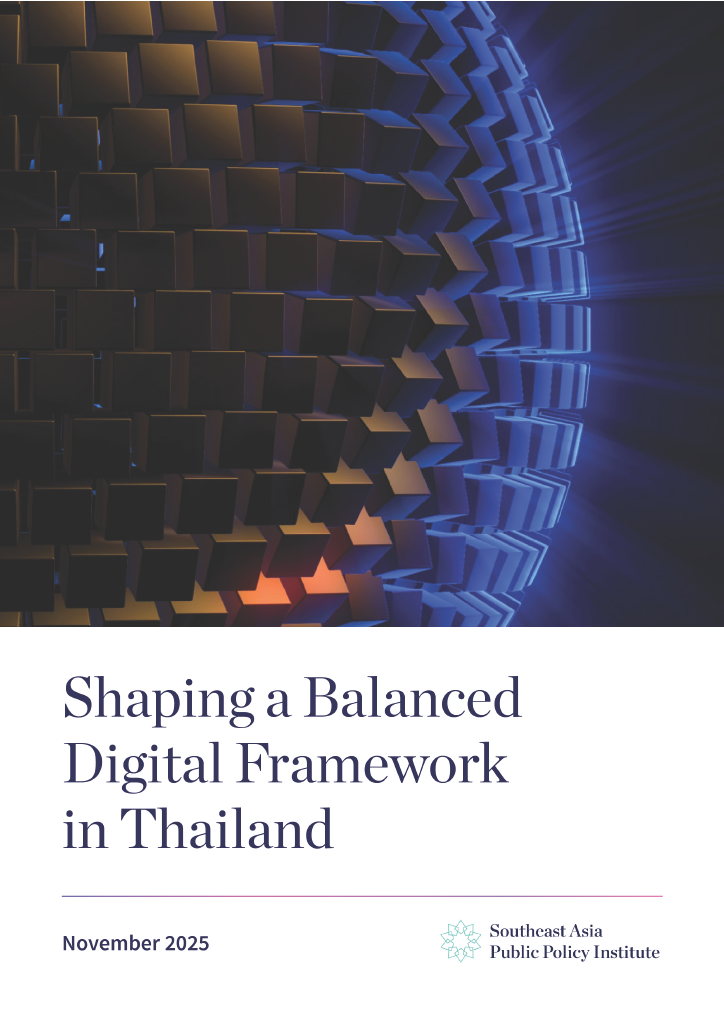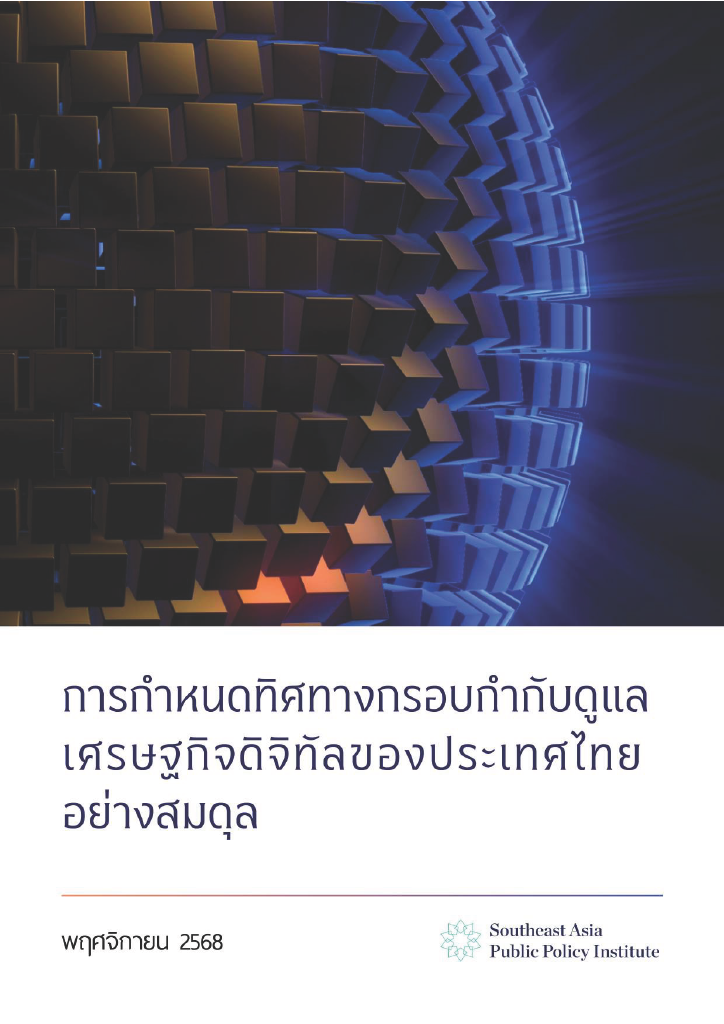Shaping a Balanced Digital Framework in Thailand

Bangkok, Thailand – November 2025
Thailand’s digital economy has rapidly become one of Southeast Asia’s most dynamic growth engines, expanding from around 6 percent of GDP in 2023 (US $36 billion) to a projected 11 percent by 2027. SMEs are deeply embedded in this transformation—over 92 percent of consumers shop online, and small firms increasingly depend on digital platforms to reach ASEAN’s US $230 billion online market.
This white paper—launched at a high-level roundtable co-hosted with the Faculty of Law, Rangsit University—examines how Thailand can sustain its digital momentum while introducing fair, transparent, and innovation-friendly regulation. It draws on comparative lessons from the EU’s Digital Markets Act (DMA) and Digital Services Act (DSA) and adaptive models in Singapore, Japan, and Korea.
Key Insights
- Thailand’s flexible, low-barrier environment has driven innovation and investment, but emerging frameworks—the TCCT Draft Guidelines on Multi-Sided Platforms, the proposed Platform Economy Act (PEA), and the Royal Decree on Digital Platform Services (2022)—signal a move toward more prescriptive regulation.
- Modelling suggests that EU-style obligations could generate aggregate compliance costs of THB 10–24 billion (≈ 0.04 % of GDP), with SME-level burdens of THB 5–12 billion (≈ 0.15–0.3 % of online GMV)—risks that could cascade through supply chains and slow innovation.
- Comparative evidence shows that consultative, transparency-based, and effects-driven approaches to achieve fair competition without deterring investment.
Policy Recommendations
- Adopt evidence-based, consultative rulemaking through full regulatory impact assessments (RIAs) and structured dialogue with industry, SMEs, and civil society.
- Enhance industry engagement and capacity building to establish regular public–private dialogue and provide guidance to help SMEs understand and meet new evolving requirements.
- Strengthen institutional coordination to clarify agency roles, prevent overlap, and ensure predictable enforcement.
A balanced, predictable, and consultation-led regulatory framework will safeguard innovation, attract sustainable digital investment, and position Thailand as a regional model for smart, innovation-friendly digital governance.
This paper has been researched and produced by the Southeast Asia Public Policy Institute with support from Amazon. The information and analysis presented are based on interviews with relevant stakeholders, publicly available information, and analysis by the authors. It does not represent the views of Amazon. It is not intended to be an exhaustive review of policy, legislation, or regulation and should be used with due caution and consideration of its scope and limitations.
Download the full report here.
รายงานภาษาไทย คลิกที่นี่
About the Southeast Asia Public Policy Institute
The Southeast Asia Public Policy Institute is a research institute based in Bangkok and Singapore, working across the region. Our mission is to support the development of solutions to the most pressing public policy challenges facing Southeast Asia in the 21st century. The Institute undertakes in-depth research to develop actionable policy solutions on a range of issues across sustainability, technology, public health, trade, and governance. We convene dialogues with stakeholders and decisionmakers to drive discussion on the challenges and opportunities facing markets across the region. The Institute draws on a network of in-market researchers, advisors, and partners to provide insights and recommendations for governments, policymakers, and businesses.




